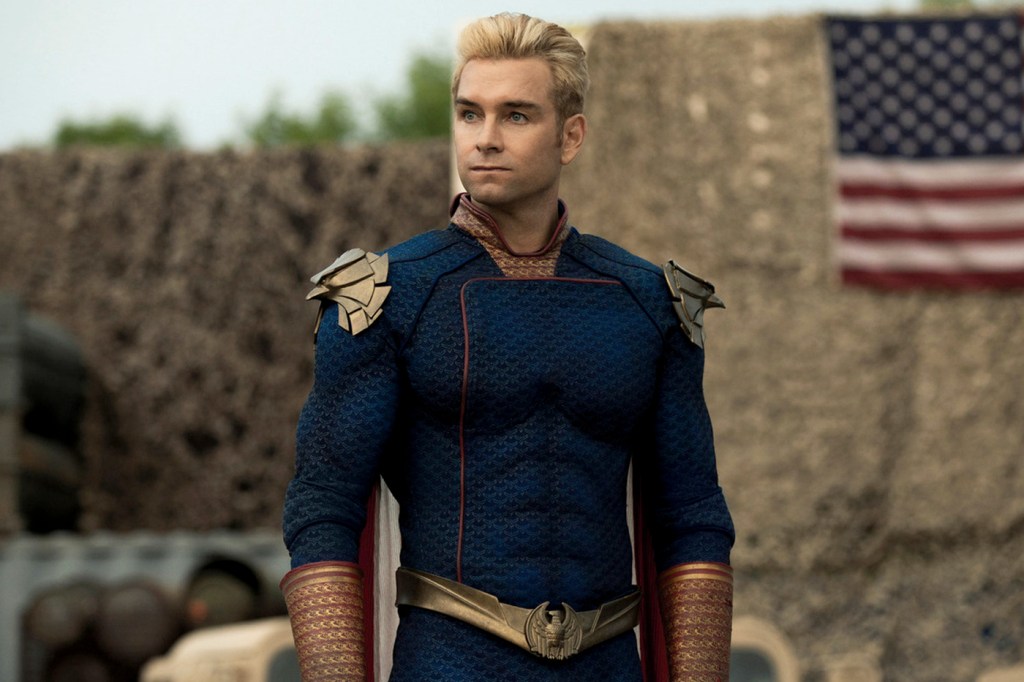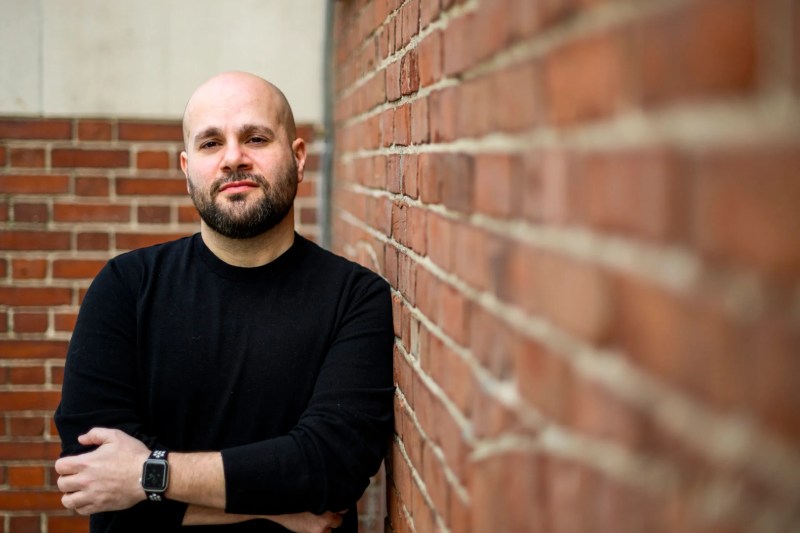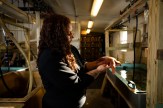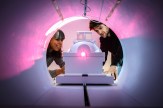In ‘The Boys’ and ‘Invincible,’ Superman breaks bad. What does that say about pop culture and America in 2024?
More and more superhero content shows how some audiences just don’t trust the classic symbol of “truth, justice and the American way” anymore, experts say.

Since Superman first flew onto the pages of DC comic books in 1938, the character has been a beacon of hope, using his tremendous god-like power to be a force for good in the world. But what if he wasn’t?
Recent comic book adaptations like “The Boys” and “Invincible” have taken critiques of Superman-like figures and put them on the screen for new audiences. What does it say about pop culture and American audiences in 2024 that these stories are so popular?
Steve Granelli, an associate teaching professor of communication studies at Northeastern University, says it’s part of the history of how comic book stories have always spoken to contemporary concerns.
In 2024, at a time when nationalism has reshaped American politics yet again, a character like Superman represents something different than when he first appeared in comics in the leadup to World War II. DC Comics seems to recognize this, having recently changed the character’s motto from “Truth, Justice and the American Way.”
Granelli says Homelander, the narcissistic, psychopathic, corporate-sponsored Superman analogue in “The Boys,” embodies a more recent shift in America’s political atmosphere. The parallels to former President Donald Trump are not just on the surface –– they’re in your face, even if some fans are just now realizing it.
“Homelander’s playing off of Superman but taking him out of the red and blue and yellow and putting him in red, white and blue,” Granelli says. “It’s not enough to just be stars and stripes. … It’s nationalism turned up to a degree where it’s harmful.”

“It only works now,” Granelli adds. “That character doesn’t work 25 years ago, when maybe we were desiring that there was somebody like that who was just patently good or could be just patently nationalistic.”
Kendall Phillips, an author and host of NPR’s Pop Life show, says the recent examination of the Superman myth is part of a larger trend in pop culture.
“Our hero narratives respond to our broader cultural conditions,” Phillips says.
In the 1930s and 1940s, there was a “desire for a Superman figure who was invincible but always right and always moral and always good,” he adds. However, in the 1980s, during the latter part of the Reagan administration, “the flag-waving didn’t seem quite as positive,” Phillips says. Belief in American institutions that had soured during the 1960s and 1970s curdled to further distrust.
Now, Phillips says, pop culture is starting to reflect how the distrust has turned to distaste. Creators are twisting the archetypal Superman into something that represents that “very pervasive tone in American popular culture at the moment, which is ‘they’ can’t be trusted,” Phillips adds.
“Not surprisingly, we see that in ‘Watchmen,’ where the whole police system was set up based on systemic racism,” Phillips says. “We certainly see that in ‘Invincible,’ where the main superhero is entirely there to subjugate us and turn us into subjects. And certainly, ‘The Boys’ is the most graphic example of that.”
Featured Posts
In the earliest iterations of Superman, the character was outside systems of power, fighting slum lords and corrupt cops. Homelander is not just operating within the system — he works for the villainous corporation Vought International — he is the system. He’s more worried about Vought’s stock price than the safety of civilians. Omni Man in the adult animated series “Invincible” appears to be an alien super being like Superman who protects Earth, but his secret mission is to subjugate the planet and prepare it for colonization.
Granelli says modern superhero stories like “The Boys” speak less to a kind of fantasy and more to the most cynical perspectives about American politics. They exaggerate reality just enough to give audiences some space to breathe, but the reality is still there.
In both shows, the Superman analogue hides behind a mask that eventually drops to reveal something uglier underneath. Even when the mask is dropped, there are no consequences.
In season three of “The Boys,” Homelander uses his laser vision to murder a civilian in front of a crowd at a rally after they call him a fascist and throw an object at his son. The crowd responds not with horror but rapturous support, a not so subtle reference to a statement Trump made in 2016. There is great power but it comes with zero responsibility.
“Homelander is an avatar for those kinds of figures in real life where we’re like, ‘We know why you’re doing this. You’re only doing this for power, popularity. It’s the most base form of nationalism ever. You’re only doing this for yourself,’” Granelli says. “He’s just admitting to it. … He’s a politician and also he’s a monster who can kill everybody and he’s doing it behind an insincere grin and a perfectly coiffed hairdo. It’s everything that’s likable and hateable on both sides.”










